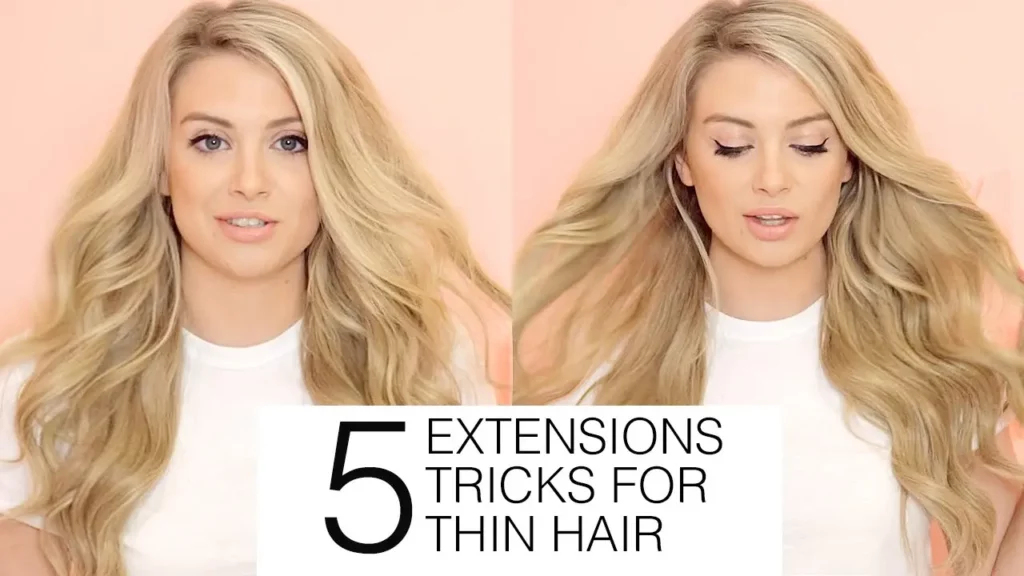
My Hair Is So Thin After Extensions (How To Stop Thinning About This)
This article is going to help you deal with thin hair after extensions. We’ll discuss how to take care of your hair, how to prevent split ends, and what products can help keep your hair healthy.
We will also cover what you should do if you already have thin hair and have had extensions before.
Methods include: Adding volume daily by spraying in a volumizing treatment, avoiding hot tools, and supplements are a few great ways of maintaining your hair and scalp.
When you take extensions out, it is normal to feel like your hair’s on the thin side. This may be due to your brain and the expectation that your hair should be full.
If you’re noticing that your hair looks a little thinner & limp after adding extensions, it might be better to consider making a change before long-term damage starts.
Maybe you noticed some hair loss, thinning, and damage to your natural hair. If so, this is actually pretty common because of the extensions people choose to wear regularly.
It’s important to ask yourself whether you still want these hair accessories because they often cause serious damage over time.
This is a difficult situation. Some hair extensions can damage your follicles, making it impossible to get back the volume you once had. It is important to keep hair and scalp healthy, especially with how much work we put into it.
Thinning hair is one of the many unfortunate consequences experienced by women after they remove their extensions. With these tips, you should regain your locks’ full volume and shine!
Can Hair Extensions Cause Hair Loss?
Yes, extensions can cause hair loss and damage to your natural hair. What causes the severity of the effect varies based on factors like what type of extensions you used and your natural hair.
Here are four (4) different types of hair extensions and the effects they can have on your hair:
Clip-ins:
These hair extensions clip onto your hair and are easy to take out. They are the most temporary type of extensions, so most people remove them not long after they put them in.
They have a low risk of causing any damage and can provide a break from your work. There might be some potential risks, but you should be careful to guard against them.
Tape-ins:
In addition to lasting a long time, these hair extensions have other benefits. For example, they will stay in your hair for 6-8 weeks so you don’t have to worry about re-applying them as often.
Extensions can be attached to your hair using strong tape. They provide a more secure bond than clip-ins, allowing for a better look. This could lead to damage as a result of the strength of the bond.
When it comes to hair extensions, some types require pulling and tugging and the added weight can cause some of them to fall out.
Tricks such as using tape afterwards can cause additional hair loss, so removal must be done by a professional.
Fusion:
Keratin extensions use a tool that creates a keratin bond between the extensions and the natural keratin in your hair. They are incredibly popular and seen as an easy way to change up your hair without the hassle of dyeing it or styling it every day.
Bonds between your extensions can last a long time and they CAN be strong. However, the downside is that they can cause some serious damage to your natural looking hair.
Heat can also cause damage to your hair. And while we’re on the topic of extensions, they don’t come without their own risks.
If you want healthy long hair- make sure to stay up-to-date on some styles that are perfect for natural or fine strands.
Sewn-in:
Weaving hair extensions in is fairly simple. It helps to braid your natural hair first into a tight cornrow and then weave-in the extensions carefully.
It can take up to eight weeks for your hair to fully grow out any effects of wearing sewn-in extensions.
This can lead to a lot of damage over time, so you’ll want to avoid wearing them for a long period. In addition, the pulling of your hair may lead to permanent hair loss in certain areas of your scalp.
Why Your Hair Gets Thin From Extensions?
There are many reasons why your hair might start to thin and fall out. One of the most common reasons is extensions, which is a popular way to add length and volume to your hair.
If you’re experiencing thinning hair from extensions, there are a few ways you can address it. You can stop wearing them or use a different kind of hair extension, or you can use products that will help boost natural hair growth.
Hair extensions are not for everyone, but they do provide an easy way for people with short natural hair to achieve the look they want without having to go through the process of having their own hair cut or styled every day.
How To Thicken Hair After Extensions?
Weekly Hair Treatment
Hair is a crucial component of your overall appearance and it can grow back quicker when placed in the best condition. We recommend using a good conditioner with every wash & doing an intensive weekly treatment
For dry hair, some great options are oil treatments that can add hydration to the shaft. Hair masks with ingredients like keratin can also be beneficial as well.
Keratin hair care products should be used while slowly building up the use over time. Doing so will allow you to avoid the opposite effect of stripping your scalp of natural oils and nutrients, which can lead to huge issues with dry or brittle hair.
Weekly Scalp Treatment
Since hair extensions can damage the scalp, it’s hard for them to grow healthy hair. Your scalp needs a healthy environment for good growth! A scalp treatment is similar to an application of a mask, but the product will be applied directly to your scalp.
Assisting with hair growth is a specialty of Aveda. They have numerous scalp treatments, but their speediest is the one that features peppermint oil.
This provides stimulating benefits when used as a scalp treatment before or after washing & styling, and it’s also beneficial in boosting hair growth.
Avoid Heat Styling Tools
Removing your extensions can cause damage to your hair, especially if you have a lot of perms. So, while they grow out, try to avoid using hot tools and removing too much of the strand at once. This will help with the regrowth process and reduce additional damages.
You should make an effort to avoid using them, but if you absolutely need help, apply a good heat-protecting spray before beginning.
Supplements and Diet
Vitamins help your body grow new hair by making sure it stays strong and healthy. However, if you want to see hair grow too fast and get thicker in a shorter amount of time, supplements can also do a great job at getting the job done.
Some of the best supplements for hair growth are vitamin A, biotin, vitamin E, vitamin D & protein. The other key ingredient is fish oil. It’s the main type of omega-3 fat, which you can also get from oily fish like mackerel, salmon and herring.
It’s important to eat a healthy diet that is comprised of whole and natural foods. These food items provide vitamins, fiber, & other important nutrients which promote good health.
Satin Pillowcase
When your hair is recovering from extensions, you can use a satin or silk pillowcase to ensure no breakage.
Unlike polyester, silk is delicate and gentle on dry or wet hair, ensuring that it will recover without any breaking or tangling.
But most importantly, the addition of smooth pillowcases alongside hair extensions provides protection during a vulnerable time in the extensions’ life-cycle so they won’t cause hair loss.
Avoid Overwashing
Avoid washing your hair more than twice a week, as this can lead to dryness and a less healthy scalp. Regular washings of your hair will slow down your hair growth rate.
Put down your hair brush. Don’t wash your hair too often and make sure to avoid spraying too much product on it, because that can dry our scalp out and cause a lot of issues in the long run.
Your hair definitely needs some extra oils & deep conditioning in order to grow well, so you should make it a habit to use organic or mineral-based oils.
Regular Brushing
You may be surprised to learn that brushing your hair regularly, as long as you brush it properly, can help your hair become healthier and thicker.
Using brushes that distribute oils throughout your hair will make your tresses stronger and less prone to breakage.
Brushing also stimulates blood flow, which then results in faster hair growth. That is why brushing your hair regularly is important for its long-term health when it comes to hair growth.
If you’re looking for an easy practice to add into your daily routine, brushing your hair in the morning and at night has some wonderful benefits that can lead to a lovely self-care ritual.
Since you’re working with hair extensions, it can be hard to avoid pulling on it or accidentally catching a tangle.
To ensure that you don’t have any issues, make sure to brush softly or hold the brush at its root at all times.
There are a lot of great brush types to use if you want to give yourself professional results, but it’s especially important to use a high-quality brush like the ones in this 3-Piece Anti Hairloss Brush Set that don’t tug on your hair. (check the current price on Amazon).
Are Hair Extensions Bad ForThin Hair?
Hair extensions can be a good choice for thin hair. This is because they add fullness, volume and length. However, it is important to know the potential risks of wearing hair extensions.
One risk is that thin hair may not be able to support the weight of the extensions and could break off or pull out with time due to the weight.
Another risk is that the extension could cause traction alopecia, which is when the roots of your own hair are pulled out due to excessive use of an elastic band or clip.
Can Thin Hair Become Thick Again?
The answer to this question is yes, you can make your hair thicker, but you will need to use other methods to do so.
The techniques that are used by people who want to make their hair thicker include:
- Using a serum or oil before shampooing
- Using a conditioner with ingredients that help build up the hair
- Using a hot oil treatment before going to bed
- Using a deep conditioning treatment before going to bed
- Doing scalp massages
Conclusion:
I hope this article has helped you learn more about extensions and their benefits and drawbacks. I hope that you will be able to use this information when choosing whether or not to get them done on your own hair.
If you have thin hair after extensions, don’t panic. These tips can help you get your healthy hair back in no time!


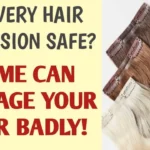
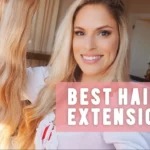
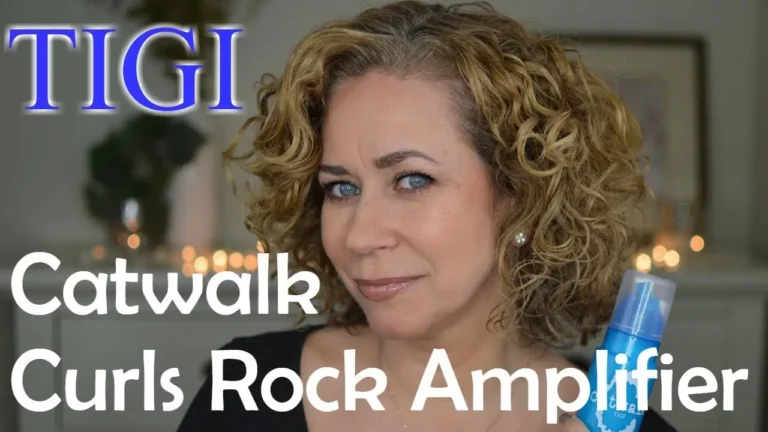
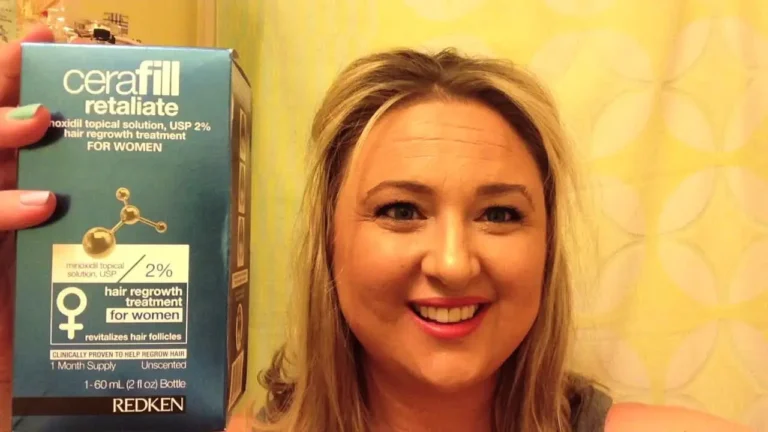
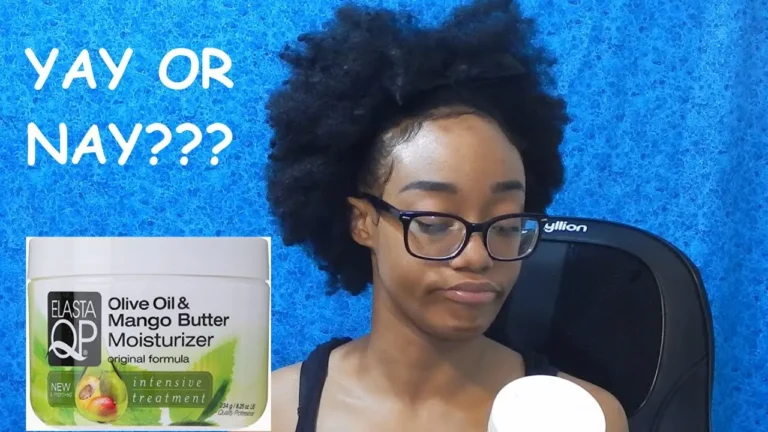

Comments are closed.